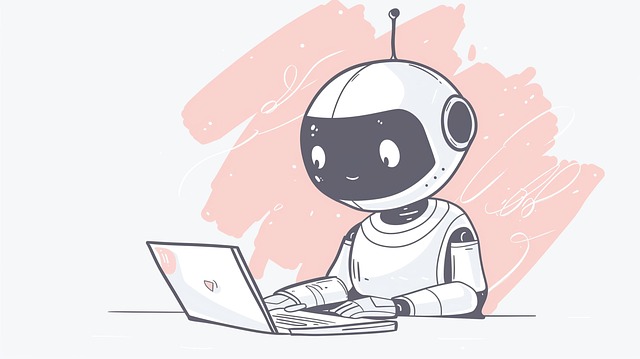In the digital age, AI chatbots are revolutionizing customer service on e-commerce platforms like Shopify by offering instant, personalized support using NLP and machine learning. Integrating an AI chatbot into your Shopify store reduces response times, improves customer satisfaction, and scales operations without additional staffing. These chatbots handle various queries from product recommendations to troubleshooting, freeing human agents for complex issues. Implementing a successful Shopify customer service chatbot requires strategic training with extensive product knowledge and industry-specific terminology. Personalization, seamless integration, and regular customer feedback are key best practices. Measuring KPIs like response time, conversion rates, satisfaction scores, and interaction volume is crucial for refining the AI chatbot's performance and delivering exceptional service to Shopify users.
In today’s digital era, enhancing customer service is crucial for Shopify merchants. An AI-powered chatbot can revolutionize the way businesses interact with their clients, offering instant support 24/7. This article delves into the world of Shopify customer service chatbots, exploring their benefits and integration strategies. We provide best practices for implementation and key performance indicators to measure success. Discover how an effective AI chatbot can transform your online store’s customer experience.
- Understanding AI Chatbots for Shopify: Benefits and Integration
- Implementing an Effective Shopify Customer Service Chatbot: Best Practices
- Measuring Success: Key Performance Indicators for Your Shopify Chatbot
Understanding AI Chatbots for Shopify: Benefits and Integration

In today’s digital era, businesses are increasingly turning to AI chatbots as a game-changer for customer service. An AI chatbot for shopify is a sophisticated tool designed to revolutionize the way e-commerce platforms interact with their customers. These chatbots leverage advanced natural language processing (NLP) and machine learning algorithms to provide instant, personalized, and efficient support. By integrating an AI chatbot into your Shopify store, you can enhance customer experience, reduce response times, and scale your operations without hiring additional staff.
The benefits of implementing an AI chatbot for shopify are vast. They can handle a high volume of simple to complex queries, from product recommendations to order tracking and troubleshooting. This not only improves customer satisfaction but also frees up human agents to focus on more intricate issues. Seamless integration with Shopify’s platform allows these chatbots to access customer data, providing context-aware interactions. Moreover, AI chatbots can learn and adapt over time, continually improving their performance based on user interactions and feedback.
Implementing an Effective Shopify Customer Service Chatbot: Best Practices

Implementing an effective Shopify customer service chatbot requires a strategic approach, leveraging the power of AI to enhance customer experience and streamline support processes. The key lies in creating a conversational AI chatbot that understands and anticipates customer queries, offering accurate, contextually relevant responses. Train your chatbot on extensive product knowledge, common customer issues, and industry-specific terminology to ensure it can handle a wide range of inquiries effectively.
Best practices include personalizing interactions by addressing customers by name, using engaging language, and providing proactive assistance based on browsing behavior or purchase history. Integrate the chatbot seamlessly into your Shopify store, ensuring it’s accessible from various pages without disrupting the user experience. Regularly collect customer feedback to fine-tune and improve the chatbot’s performance, making it an indispensable tool in delivering efficient, satisfying customer service via AI chatbot for shopify.
Measuring Success: Key Performance Indicators for Your Shopify Chatbot

Measuring success is vital for any business, and Shopify customer service chatbots are no exception. Key Performance Indicators (KPIs) provide insights into the effectiveness and efficiency of your AI chatbot. Look out for metrics such as response time – the faster the better, as it ensures customer satisfaction. Conversion rates are also critical; a well-performing chatbot should drive sales by guiding customers through the purchase process smoothly.
Additionally, track customer satisfaction scores and the number of interactions required to resolve an issue. These KPIs help identify areas for improvement, whether it’s refining the chatbot’s understanding of natural language or enhancing its product recommendation capabilities. By constantly monitoring these indicators, you can optimize your Shopify chatbot, ensuring it delivers exceptional service and enhances the overall shopping experience.
An AI chatbot for Shopify can significantly enhance customer service, providing instant support and improving overall satisfaction. By implementing best practices and measuring key performance indicators, businesses can ensure their chatbots deliver value. Integrating this technology effectively allows for a seamless shopping experience, setting shops apart in the competitive e-commerce landscape.
